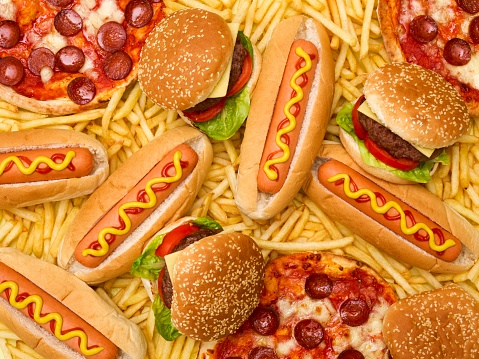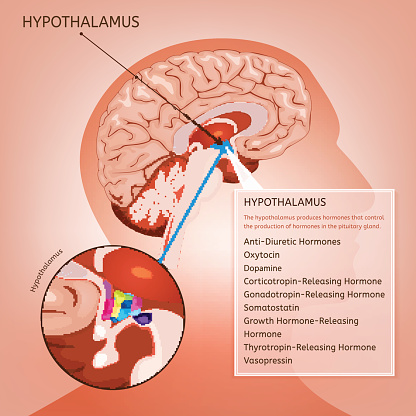High-Fat, High-Carb Diet May Cause Neurological Changes And Make You Eat More!

Many people do not associate consumption of foods like cupcakes or a large slice of cheesy pepperoni pizza, with neurological changes in the brain. Instead, we associate these foods with expanding waistlines. And if you are a bit more health conscious, you might think these foods are not good for your cholesterol or heart health.
I have discussed diet and the brain before. For example, constantly eating junk foods may increase your risk of developing depression and dementia by causing prolonged inflammation in the body.
And now a recent study conducted by researchers at Yale found that high-fat diets “...contribute to irregularities in the hypothalamus region of the brain, which regulates body weight homeostasis and metabolism,” according to this report discussing the study.
 Basically, microglial cells “act as the first line of defense in the central nervous system that regulate inflammation.”
Basically, microglial cells “act as the first line of defense in the central nervous system that regulate inflammation.”
So if you consume a lot of pro-inflammatory junk foods (which are high in fat and carbohydrates), you are creating an environment within your central nervous system in which the microglial cells really have their work cut out for them.
The results of the study revealed that changes occurred in the mitochondria (also known as the “powerhouses of the cell”) of the microglial cells. The mitochondria were smaller in the animals that were consuming the high-fat, high-carb diet.
“The mitochondria's change in size was due to a protein, Uncoupling Protein 2 (UCP2), which regulates the mitochondria's energy utilization, affecting the hypothalamus' control of energy and glucose homeostasis.”
Furthermore and perhaps what’s particularly noteworthy about this study is that the researchers saw that these neurological changes appeared to cause the animals on the high-fat, high-carb diet to eat more and become obese. When the researchers removed the UCP2 protein from microglial cells, they saw that the animals on the high-fat, high-carb diet actually ate less and did not gain as much weight.
So it appears that not only may a bad diet cause inflammation, but it may also cause you to eat more by changing your brain! If you really think about it, it would be really hard to put the potato chips down or resist that cookie when there are actually cellular changes in your brain that are telling you to go ahead and keep eating. We tend to think of eating right as all about personal willpower, however, studies are showing that how we fuel our bodies may determine how we act and operate.
"There are specific brain mechanisms that get activated when we expose ourselves to specific type of foods. This is a mechanism that may be important from an evolutionary point of view. However, when food rich in fat and carbs is constantly available it is detrimental."
So we want to expose our brains to nutrient-rich foods such as fruits and vegetables. Whole, natural foods such as these have anti-inflammatory properties that may help keep our brains healthy and functioning properly in order to fight off diseases, including obesity.
To be clear, fat and carbs are not the enemy. But you need to know which ones to consume.

There are six groups of nutrients we need to stay healthy: protein, water, vitamins, minerals, fats and carbohydrates.
So fats and carbohydrates, in moderation, are not bad for us. But we also have to understand there is a huge difference between getting fats from healthy sources such as avocado and unhealthy sources of fat such as saturated fat from a slice of pepperoni pizza.
(To understand more about fat, read here).
There is also a difference between healthy complex carbs, which contain minerals and fiber, and nutrient-void, non-complex carbs found in food items such as white bread and crackers and sugary, baked goods.
(For more information on healthy carbs, read here).
And as always, seek the advice of a competent healthcare professional regarding what is best for your diet.
Finally, in order to be our healthiest selves, maintaining nutritional balance is key. Take routine nutrient tests in order to determine if you have any nutrient imbalances or deficiencies. If you do, a competent healthcare professional can help you make the necessary dietary changes and recommend quality supplements if necessary.
Enjoy your healthy life!
The pH professional health care team includes recognized experts from a variety of health care and related disciplines, including physicians, attorneys, nutritionists, nurses and certified fitness instructors. This team also includes the members of the pH Medical Advisory Board, which constantly monitors all pH programs, products and services. To learn more about the pH Medical Advisory Board, click here.







